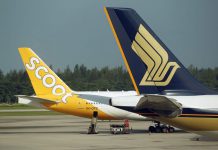Lufthansa has introduced an environmental surcharge to its ticket prices, making it one of the first airlines in Europe to take this step, potentially signaling a trend for others. The German airline group cites the necessity of meeting EU emissions reduction regulations as the reason for this new fee.
Passengers will see an additional charge of up to €72 on their fares, aimed at covering the costs of sustainable aviation fuels (SAFs) and other carbon reduction initiatives. This fee will apply to flights starting from 1 January 2025.
Airlines have long warned that the higher costs associated with SAFs would eventually impact ticket prices. Lufthansa’s “Environmental Cost Surcharge” will result in fare increases ranging from €1 to €72, depending on the ticket type, for flights departing from all 27 EU member states, as well as the UK, Norway, and Switzerland.
Tickets booked from 26 June for flights commencing on or after 1 January 2025 will include this new surcharge. The Lufthansa group encompasses Lufthansa, Eurowings, Austrian, Swiss, Brussels Airlines, and Lufthansa City Airlines.
READ: Explaining Sustainable Aviation Fuel
The environmental fee is designed to cover the rising costs due to regulatory environmental requirements, including the mandated 2% blend of SAFs for EU departures starting in 2025. Additional costs come from the EU Emissions Trading System (EU ETS) and other regulatory carbon offsetting measures.
According to EuroNews.com, the aviation sector is a rapidly growing source of greenhouse gas emissions in the EU and one of the hardest to decarbonize due to limited alternative power sources. Some European countries are addressing this by banning short-haul flights, but SAFs are considered a key solution for reducing flight emissions. The EU’s Fit for 55 climate initiative sets increasing SAF quotas for airlines, starting at 2% in 2025 and rising to 70% by 2050. However, SAF production costs are currently up to five times higher than traditional jet fuel, and supply is limited.
In 2023, global SAF production reached just over 600 million liters. The International Air Transport Agency (IATA) expects this to triple to over 1.8 billion liters in 2024, still only 0.53% of aviation’s fuel needs. This limited supply keeps costs high.
Airlines for Europe (A4E) has called on EU policymakers to boost SAF production to support sustainable aviation and decarbonization efforts.

While Lufthansa is one of the first to introduce fees related to EU SAF requirements, other airlines are expected to follow. Air France-KLM introduced a SAF contribution charge in January 2022, adding up to €12 to business class tickets and €4 to economy fares. Singapore’s government will also implement a green fuel levy on all flights from 2026, with fees varying by ticket type and journey length. This initiative aims to have 1% SAF usage by 2026, increasing to 3-5% by 2030.
























